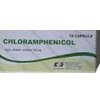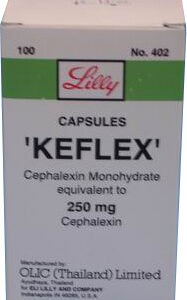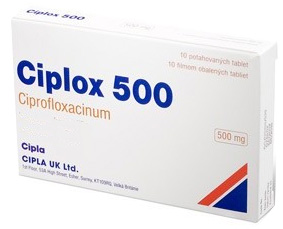Minocin is a medication that belongs to the tetracycline antibiotic class and is commonly used to treat various bacterial infections. It is available in oral capsule, tablet, and suspension forms. The active ingredient in Minocin is minocycline hydrochloride. This medication works by inhibiting the growth of bacteria, thus preventing the spread of infection in the body. Minocin is primarily prescribed for the treatment of acne vulgaris, but it can also be used to treat other infections caused by bacteria sensitive to minocycline.
Minocin is available in different strengths, and the dosage prescribed by your healthcare provider may vary depending on the severity of the infection and individual factors. It is important to complete the full course of treatment as prescribed, even if the symptoms improve before the course is completed.
Warnings
Minocin should not be taken by individuals with a known hypersensitivity or allergy to minocycline or other tetracycline antibiotics. If you have had an allergic reaction to any tetracycline antibiotic in the past, it is important to inform your healthcare provider before starting Minocin.
Minocin should also be used with caution in individuals with liver or kidney disease, as it can potentially worsen these conditions. Your healthcare provider will determine whether it is safe for you to take Minocin based on your medical history and current health status.
It is important to inform your healthcare provider about all medications, supplements, and herbal products you are currently taking before starting Minocin. Certain medications and substances can interact with Minocin, potentially increasing the risk of side effects or decreasing the effectiveness of the medication. Your healthcare provider will be able to assess these potential interactions and make any necessary adjustments to your treatment.
Possible Side Effects
Common side effects of Minocin include nausea, vomiting, diarrhea, dizziness, headache, and skin rash. These side effects are usually mild and temporary, but if they persist or worsen, it is important to inform your healthcare provider.
Rare but serious side effects of Minocin include severe headache, blurred vision, fever, joint pain, muscle pain, dark urine, yellowing of the skin or eyes, and unusual bleeding or bruising. If you experience any of these symptoms, it is important to seek immediate medical attention.
In some cases, Minocin can also cause an overgrowth of certain bacteria or fungi, leading to the development of secondary infections. It is important to monitor for any new or worsening symptoms during treatment with Minocin and report them to your healthcare provider.
How to Use
Minocin should be taken exactly as prescribed by your healthcare provider. It is typically recommended to take the medication with a full glass of water to prevent irritation of the esophagus.
If you miss a dose of Minocin, take it as soon as you remember. However, if it is almost time for your next scheduled dose, skip the missed dose and continue with your regular dosing schedule. Do not take a double dose to make up for a missed one.
In case of an overdose, seek immediate medical attention. Overdosing on Minocin can lead to severe symptoms such as stomach pain, nausea, vomiting, dizziness, and headache. It is important to avoid taking more than the prescribed dose to minimize the risk of overdose.
How Other Drugs Affect Minocin
Minocin can interact with certain medications, potentially affecting their efficacy or increasing the risk of side effects. It is important to inform your healthcare provider about all medications, supplements, and herbal products you are currently taking before starting Minocin.
The following medications may interact with Minocin:
– Penicillin antibiotics: Co-administration of Minocin with penicillin antibiotics may reduce the effectiveness of both medications. Your healthcare provider may need to adjust the dosages or prescribe alternative antibiotics.
– Oral contraceptives: Minocin can reduce the effectiveness of hormonal contraceptives such as birth control pills. It is recommended to use an additional method of contraception while taking Minocin to prevent unintended pregnancies.
– Antacids and other products containing aluminum, calcium, magnesium, iron, or zinc: These products can decrease the absorption of Minocin when taken together. To avoid this interaction, it is recommended to take Minocin at least 2 hours before or 4 hours after taking these products.
It is important to consult your healthcare provider or pharmacist for a complete list of medications that may interact with Minocin.
Common Questions
-
Q: Can Minocin be used to treat viral infections?
A: No, Minocin is an antibiotic and is only effective against bacterial infections. It will not be effective in treating viral infections such as the common cold or flu. -
Q: Can Minocin be taken during pregnancy?
A: Minocin should be used with caution during pregnancy, especially during the second and third trimesters, as it can affect the development of the baby’s teeth and bones. It is important to discuss the potential risks and benefits of using Minocin during pregnancy with your healthcare provider. -
Q: Can Minocin cause photosensitivity?
A: Yes, Minocin can cause increased sensitivity to sunlight and UV rays. It is important to take precautions such as wearing protective clothing and using sunscreen while taking Minocin to avoid sunburns and skin damage. -
Q: Can Minocin be taken with food?
A: Minocin can be taken with or without food. However, taking it on an empty stomach may help improve its absorption and effectiveness. -
Q: How long does it take for Minocin to start working?
A: The onset of action of Minocin may vary depending on the condition being treated. Improvement in acne symptoms can usually be seen within a few weeks of starting treatment, while other bacterial infections may require a longer duration of treatment before significant improvement is observed.






Reviews
There are no reviews yet.